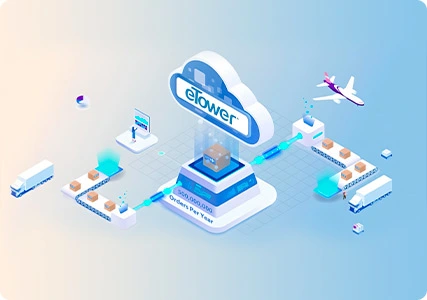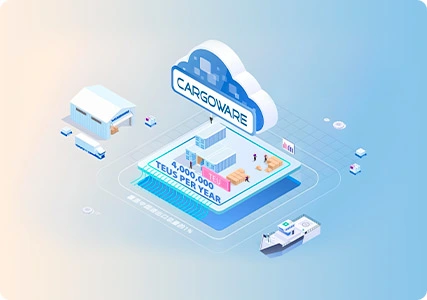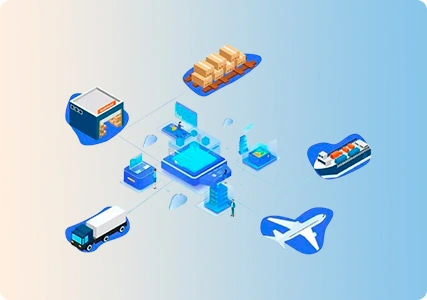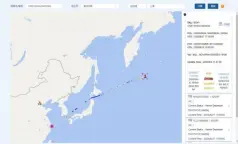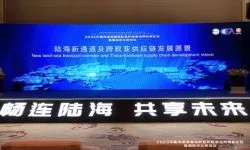As Amazon's empire holds sway, Temu has burst onto the scene like a bolt of lightning. Since its launch on September 1, 2022, it has outshone heavyweights like Shein, Amazon, Walmart, and Shopify, rising to the top of the shopping app charts on both the US App Store and Google Play within a mere two months.
The second quarter of this year witnessed another historic milestone for Temu. With its successful penetration of the European market and impressive performance there, it secured a spot in the global top ten for app downloads.
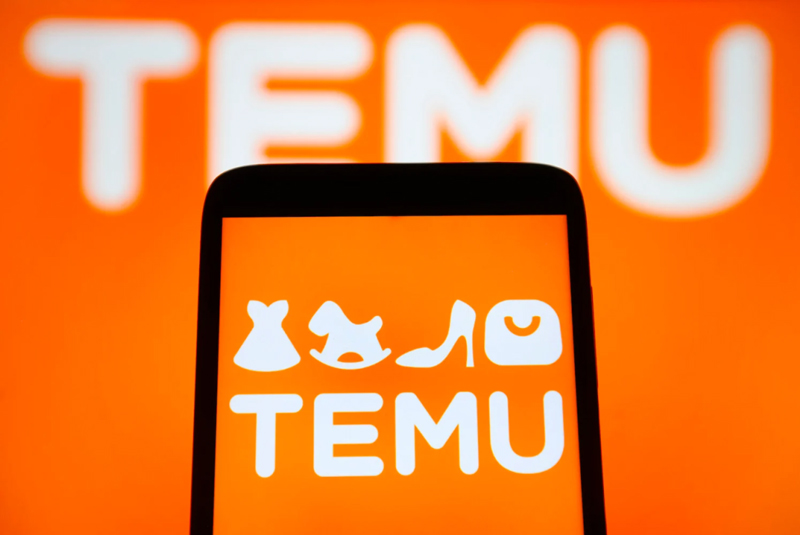
Entering the top ten downloads is a momentous achievement for Temu. It signifies not just the rise of a new star in the overseas market but its transformation into a global cross-border shopping platform. This achievement has naturally attracted a flurry of exceptional logistics service providers eager to join the ranks.
However, the platform's nearly "hellish" supplier assessment process and meticulous system integration standards have presented myriad challenges for logistics companies seeking to partner with Temu. These "high standards and strict requirements" have become the primary deterrents, scrutinizing the digital capabilities, service responsiveness, problem-solving agility, and more of logistics service providers.
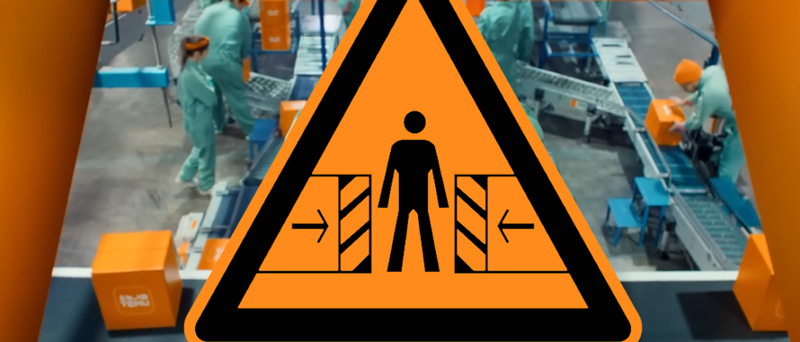
The "Hellish" Logistics Supplier Assessment
One of Pinduoduo's key tools for overseas e-commerce success is its logistics efficiency. Since its launch, Temu's bidding strategy for logistics providers has evolved, yet its stringent technical and service assessments remain steadfast.
First Stage:
Partnered logistics providers under Temu's model manage full-chain integration, offering comprehensive door-to-door services: operation centers (waybill processing) > mainline transportation > customs clearance > last-mile delivery. Domestic primary transport adopts a unified warehousing and distribution model. Merchants pre-deliver goods to Temu's Guangzhou warehouse, which the platform collectively air-ships to overseas markets.
Second Stage:
Temu has adopted a segmented bidding approach, fragmenting each logistics segment and subcontracting to various logistics providers. Providers for each segment must still adhere to various assessment criteria, including response time, tracking feedback, problem-solving speed, and more.
Irrespective of the policy, logistics providers need to demonstrate robust service capabilities and digital prowess for successful bidding. Additionally, during the fulfillment process, they undergo Temu's assessment:
1. Interface Integration:
Logistics providers' systems must establish a dedicated Temu logistics tracking interface, adhering to specific data format fields such as flight information and standardized GMT time zones.
2. Operation Center Waybill Exchange:
Logistics providers' systems receive waybill information from last-mile service provider systems, proactively transmitting it to Temu systems and operation centers. Upon parcel receipt at the operation center, the reference number barcode from Temu is scanned onto the last-mile waybill, with encrypted user information storage.
3. Comprehensive Parcel Trajectory Data:
Logistics service providers must ensure both domestic and international parcel trajectory nodes are transmitted to the Temu system within 24 hours of trajectory changes.
Furthermore, to ensure regular and continuous parcel transportation, if parcel trajectories remain unchanged for seven days without valid reasons, Temu levies fines on logistics providers.
4. Reporting Anomalies:
Any parcel anomalies must be reported to Temu within two hours, with exceptional parcel information uploaded to Temu's system.
5. Swift Issue Resolution:
This encompasses issues like API glitches and system errors. Logistics providers must rectify such issues within 48 hours.
6. Consistent Last-Mile Trajectories and Official Websites:
This assessment poses a challenge for many logistics providers. Typically, the systems used by logistics providers, once integrated with last-mile systems or third-party data platforms, can access last-mile parcel trajectories. However, trajectories output by last-mile service provider systems often slightly differ from those displayed on their official websites. Temu mandates that the trajectory returned by logistics providers' systems must perfectly match the trajectory displayed on the last-mile service provider's official website. Although seemingly straightforward, this requirement demands significant effort for comparison and modification, acting as a barrier discouraging numerous logistics providers.

In summary, Temu's requirements constitute a comprehensive 360°test of logistics providers' capabilities. Violations result in tangible fines. This places significant pressure on logistics companies aspiring to join the Temu team.
eTower’s Solution
eTower, a cross-border e-commerce logistics collaborative cloud service platform under WallTech, caters to integrated logistics service providers in cross-border e-commerce and large cross-border e-commerce freight forwarders. It also serves large cross-border e-commerce sellers with supply chain management needs.
Since Temu's rise, an increasing number of eTower platform users have been keen to explore opportunities. Accordingly, eTower introduced the Temu eTower Solution, offering complete support from technology to service, meeting the essential system integration requirements for logistics integrators connecting with Temu.
With shifts in Temu's bidding policies, eTower promptly gathered intelligence, rapidly responded to the new platform rules, and tailored a segmented solution based on the original plan. This effectively supports the platform and sellers' shipping requirements.
1. Dedicated Logistics Interface:
eTower established dedicated API interfaces in line with Temu's requirements, ensuring real-time data transmission between logistics service providers using eTower systems and Temu's platform. During logistics service providers' fulfillment process, eTower strictly adheres to platform confidentiality rules, encrypts user information storage, and safeguards consumer privacy.
2. Full tracking and Pre - alert
To meet strict parcel trajectory requirements, eTower has achieved real-time trajectory change notifications to the Temu system, far exceeding the platform's 24-hour stipulation. Real-time full-scale trajectory change data transmission is performed (i.e., when trajectory changes occur for one waybill, the historical trajectory of that waybill is also transmitted).
eTower also provides logistics service provider systems with an "pre - alert report" – based on the platform's "trajectory must be updated within seven days" rule, eTower issues warnings to logistics providers if trajectories remain stagnant for three days. This allows sufficient time for problem investigation and resolution.
3. Exception Handling, Recovery in 30 Minutes:
For daily bugs such as interface timeouts and data errors, eTower's platform has established a specialized service team for Temu logistics suppliers, operating on a 24-hour shift basis to ensure recovery within 30 minutes.
4. Stress Testing: No Worries During Peak Demand:
In routine operational deployment, interface connectivity and data accuracy are regularly tested to ensure the system operates optimally. Following periodic server stress testing, servers can handle over three times the peak traffic, guaranteeing the system's capacity far exceeds actual peak traffic demands during peak seasons, solidly supporting sellers and the platform's shipping needs.
5. Last-Mile Tracking, Precise Word by Word:
eTower has connected with nearly a hundred last-mile service providers spanning five continents, laying the foundation for logistics service providers using eTower. To address Temu's specific last-mile trajectory demands, a new mapping rule was developed, painstakingly ensuring the trajectory information transmitted to Temu aligns perfectly with what's displayed on the last-mile service provider's official website.
Through its relentless pursuit of excellence in digital platform operations and meticulous service quality, eTower has guided logistics service providers through ever-changing rule variations. It has facilitated successful bidding for multiple platform enterprise users, efficiently propelling Chinese manufacturing onto the global stage.
About eTower
eTower, subordinate to WallTech, is a cross-border e-commerce collaborative logistics parcel delivery software platform. eTower parcel delivery software enables all parties in the cross-border logistics chain to easily monitor data and work together efficiently and conveniently in an integrative way.
Unlike typical cross-border logistics systems, eTower integrates based on Internet platform resources, connecting numerous stakeholders across the entire logistics chain from sellers to buyers. This encompasses e-commerce platforms, sellers, buyers, last-mile carriers, customs clearance, overseas warehouses, and various other service providers, facilitating actions ranging from shipping, pickup, consolidation, label printing, barcode scanning, customs clearance, international mainline transportation, overseas customs clearance, warehousing, and delivery. On the cross-border e-commerce logistics chain, every relevant stakeholder can log into eTower based on their role, see specific shared information provided by the "chain principal" enterprise, complete their tasks, and have the system automatically update statuses throughout the chain. Any company with service advantages at a certain part of the chain can join and find its place and value in the collaboration.
eTower is already in collaboration with Canada Post, PostNL, PostNord, TOLL, and APG, along with hundreds of national postal, express, freight forwarding agents, local/overseas warehouses, customs clearance firms, cross-border e-commerce ERP, and other logistics system platforms globally. The platform is also connected to thousands of cross-border e-commerce sellers, independent websites, and e-commerce platforms including eBay, Wish, AliExpress, Shopify, and Amazon, processing over 1.5 million daily orders. Temu's successful foray into international markets owes much to its exceptional supply chain integration abilities, and behind Temu's might is the multitude of logistics suppliers silently servicing the venture.
China's overseas expansion relies on the supply chain, and the supply chain is inseparable from digitization. WallTech views empowering through digitization as its mission, aiming to engrave it in every small change across the past, present, and future.

